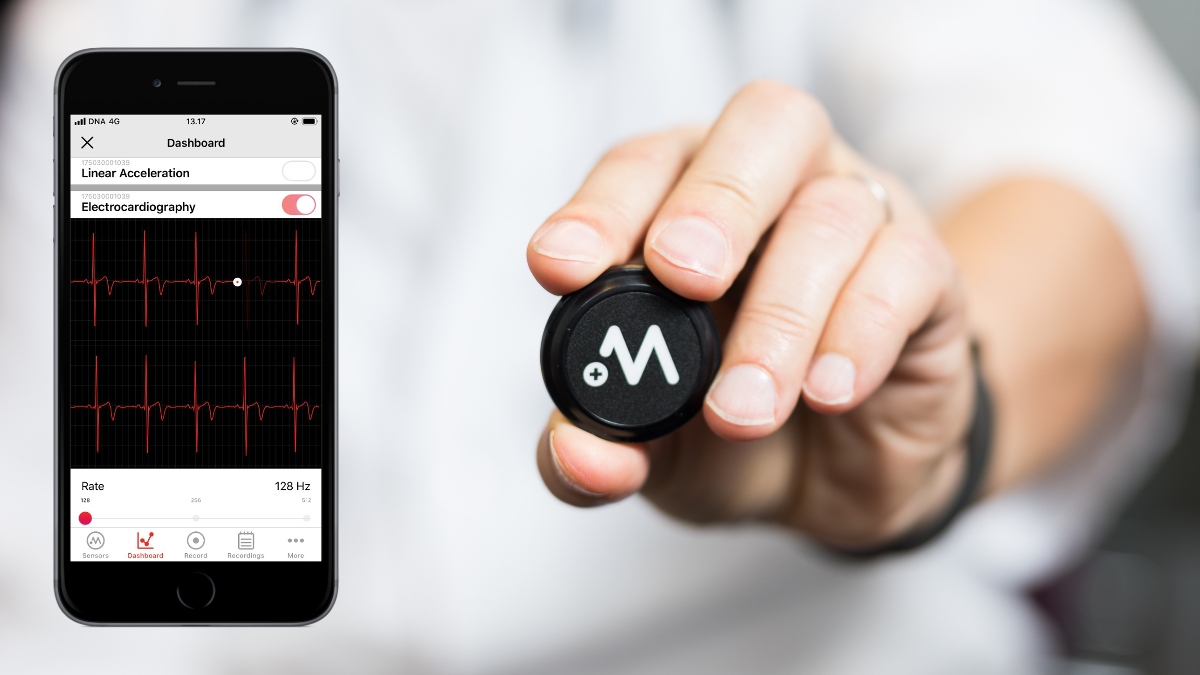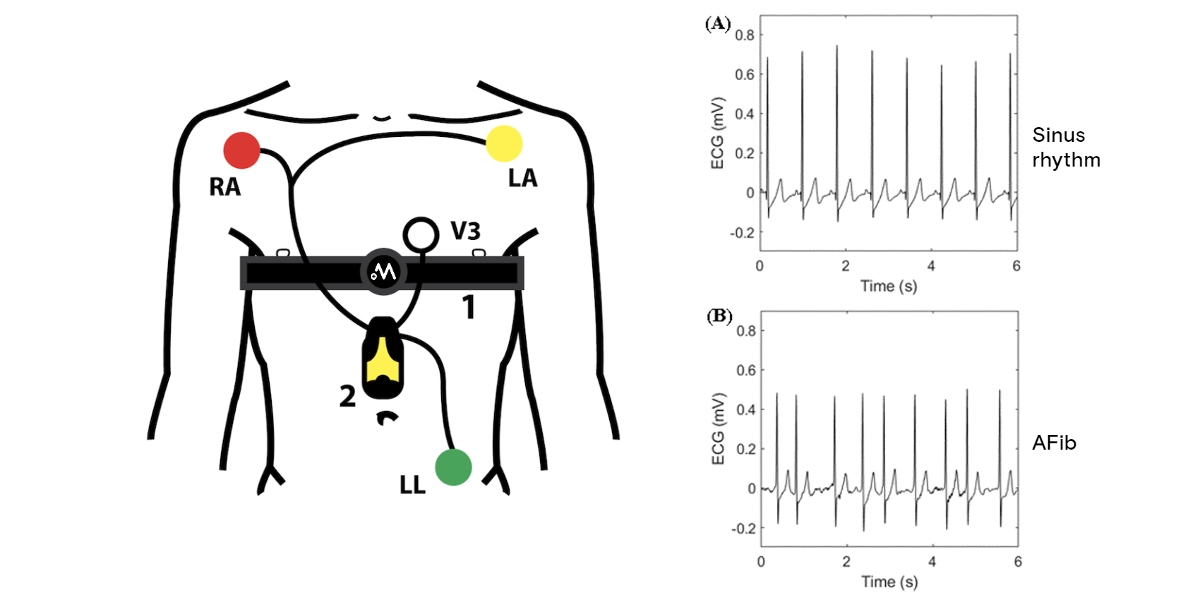A New Study Proves Movesense Medical’s Accuracy in Detecting Atrial Fibrillation

Atrial fibrillation, also called AFib or AF, is the most common type of treated heart arrhythmia. AF increases a person’s risk for stroke. Strokes caused by complications from AF are usually more severe than strokes with other causes. However, with timely detection and treatment of AF, the stroke risk can be remarkably reduced.
The risk of atrial fibrillation increases with age. With the ageing population, the prevalence of AF has doubled from 1990 to 2019 and doubling is expected also from 2010 to 2030 (1). Therefore, leading cardiology organizations recommend regular screening for atrial fibrillation in people over 65 years of age.
Traditional screening methods, such as 12-lead electrocardiography and Holter recordings, require clinical settings and professional personnel to perform the measurement. Their likelihood of detecting AF is limited because AF is often asymptomatic or paroxysmal, which is why the patient is often not measured just when AF occurs.
The need for more comprehensive, convenient and faster AF screening methods is therefore obvious. The solution to this could come from the world of consumer electronics, where new wearable devices are providing practical tools for ECG measurement even for medically regulated use.
Movesense Medical sensor is one of the new tools available for ECG monitoring and, according to a recent scientific validation study, is suitable for accurately detecting AF.
Download Movesense Medical Datasheet
In the research paper Automatic Mobile Health Arrhythmia Monitoring for the Detection of Atrial Fibrillation: Prospective Feasibility, Accuracy, and User Experience Study, published by the journal JMIR mHealth uHealth, a research group1 coordinated by Elmeri Santala studied the accuracy and user experience of an AF detection solution using Movesense Medical sensor and Movesense heart rate strap.
Researchers of University of Eastern Finland, Kuopio and Kuopio University Hospital Heart Center recorded 24 hours of ECG of 73 AF patients and 86 persons with normal sinus rhythm with Movesense Medical and an associated mobile application as well as with a 3-lead Holter device that provided gold standard data for the final rhythm diagnostics and served as a reference device for the user experience study.

100% accuracy, sensitivity, and specificity of AF detection with visual interpretation
The results of the study were excellent: Movesense heart rate belt provided a high-quality ECG recording that allowed cardiologists correctly identify all the patients with AF, and none of the subjects with normal sinus rhythm were given a false AF diagnosis. With this data sample, the outcome could not have been better.
The automatic AI-based arrhythmia detection algorithm developed by the Finnish healthtech startup Heart2Save, which was tested in the study, also gave high accuracy. The algorithm detected correctly all the patients with AF and suggested the presence of AF in 4 patients in the control group, resulting in a subject-based accuracy of 97.5%, sensitivity of 100%, specificity of 95.4%. In most cases, the false AF alarm of the automatic detection was due to other arrhythmias, i.e. frequent supraventricular or ventricular extrasystoles.
The key finding of the study was that a novel mobile arrhythmia monitoring system that used Movesense Medical with a chest strap for ECG measurement and Heart2Save mobile application and AI arrhythmia analysis to record and analyze ECG data was both feasible and accurate for 24-hour ECG monitoring and heart rhythm diagnostics.
In fact, the AF detection sensitivity (100%) was superior, and the specificity (95.4%) was comparable or even superior to those in previous studies. This is a promising solution to the unmet need for automatic AF detection and can potentially significantly reduce the workload of visual analysis of long-term ECG recordings for AF screening.
Chest strap preferred over Holter
The researchers also tested the user experience of Movesense chest strap compared to the reference, lightweight 3-lead Holter device. Patients rated the comfort of both devices neutrally, but when asked if they would use the device at home to monitor rhythm, a statistically significant difference was found in favor of the chest strap.
This is also a very positive result. Ideally, chest strap-based ECG monitors can be made easy enough for a monitored person to use without the support of a healthcare professional. This can lead to significant cost savings in implementing ECG screening in practice.
Promising outlook for efficient AF screening
Our takeaway from the study is that, with a suitable analysis solution, Movesense Medical enables efficient AF screening that is very competitive compared to traditional methods in terms of accuracy and user experience.
Taking into account the lower cost of the device compared to common Holter monitors and the possibility of autonomous use, new solutions built with Movesense Medical may also allow AF screening to be extended to a wider audience as recommended by heart associations.
To discuss with the Movesense team about your needs for using Movesense Medical sensor as part of the health solutions that your company is developing, get in touch with us right away!
Contact Movesense Buy a Sample
Links and further reading:
Full article in JMIR mHealth uHealth
Movesense Medical product page with a link to datasheet
Blog post: Movesense boosts the rise of medical wearables
1 Santala OE, Halonen J, Martikainen S, Jäntti H, Rissanen TT, Tarvainen MP, Laitinen TP, Laitinen TM, Väliaho ES, Hartikainen JEK, Martikainen TJ, Lipponen JA. Automatic Mobile Health Arrhythmia Monitoring for the Detection of Atrial Fibrillation: Prospective Feasibility, Accuracy, and User Experience Study. JMIR Mhealth Uhealth 2021;9(10):e29933
Views: 1281
